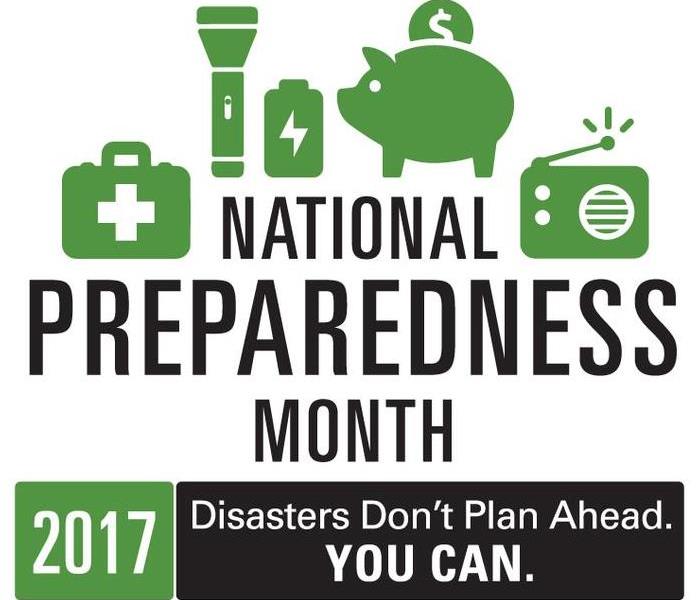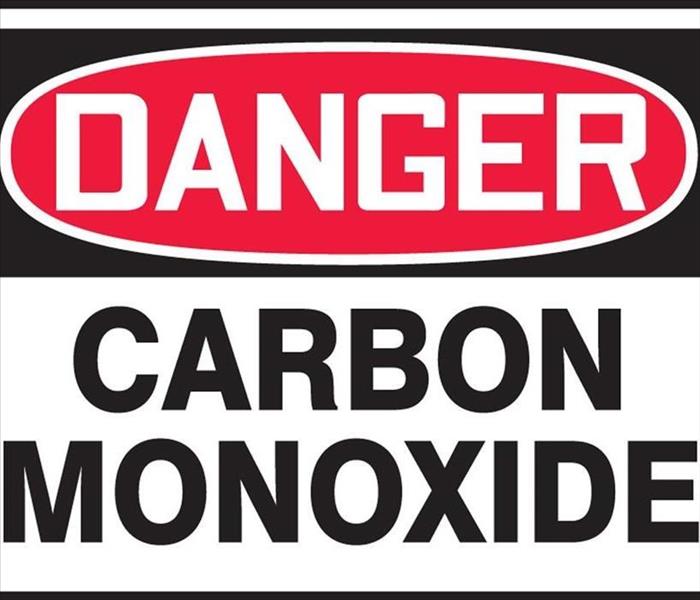Recent General Posts
A Guide to Keeping Your Carpets Fresh and Clean
3/17/2023 (Permalink)
Carpets are an essential part of any home, providing comfort and style to your living spaces. However, carpets are also notorious for attracting dirt, dust, and other pollutants, which can cause them to look dull and dingy over time. To keep your carpets looking their best, it is important to invest in regular cleaning and maintenance. In this blog, we will discuss the benefits of carpet cleaning by SERVPRO of Sarpy and why it is a great choice for your home.
Why Choose SERVPRO of Sarpy for Carpet Cleaning?
SERVPRO of Sarpy is a leading provider of cleaning and restoration services for homes and businesses. With years of experience and a commitment to quality, SERVPRO of Sarpy is a trusted name in the industry. When you choose SERVPRO of Sarpy for carpet cleaning, you can expect:
Professional and experienced technicians: Our technicians are trained and certified in the latest cleaning techniques and technologies, ensuring that your carpets receive the best possible care.
Safe and effective cleaning solutions: We use only safe and effective cleaning solutions that are gentle on your carpets and the environment.
Fast and efficient service: Our technicians are equipped with state-of-the-art equipment, allowing them to clean your carpets quickly and efficiently.
Affordable and transparent pricing: We believe in providing our customers with affordable and transparent pricing, so you know exactly what you're paying for.
The Benefits of Carpet Cleaning
Carpet cleaning by SERVPRO of Sarpy provides numerous benefits for your home and your health. Some of the key benefits include:
Improved air quality: Carpets can trap pollutants, such as dust, pet dander, and mold spores, which can contribute to poor indoor air quality. Regular cleaning can help to remove these pollutants, improving the air quality in your home.
Extended carpet life: Regular cleaning can help to extend the life of your carpets, by removing dirt and other particles that can cause damage over time.
Better appearance: Clean carpets look better and can enhance the overall appearance of your home.
Allergen reduction: Carpets can trap allergens, such as dust mites and pet dander, which can cause allergy symptoms. Regular cleaning can help to reduce the levels of allergens in your home, improving your health and comfort.
In conclusion, carpet cleaning by SERVPRO of Sarpy is a great choice for homeowners who want to keep their carpets looking their best. With professional technicians, safe and effective cleaning solutions, and affordable pricing, SERVPRO of Sarpy is the perfect partner for all your carpet cleaning needs. Contact us today to schedule your appointment and experience the benefits of a clean and refreshed home.
National Preparedness Month: Do you have a plan?
8/25/2017 (Permalink)
 photo by ready.gov
photo by ready.gov
How quickly you company can get back to business after a tornado, fire, or flood often depends on the emergency planning done today. The regular occurrence of natural disasters demonstrates the importance of being prepared for any emergency. While each situation is unique, your organization can be better prepared if you plan carefully, put emergency procedures in place, and practice for all kinds of emergencies. The following are basic measures business owners and managers can take to begin preparing. A commitment to begin planning today will help support your employees, customers, the community, local economy, and even the country. It also protects your business investment and gives your company a better chance for survival.
Develop a Business Continuity Plan.
Your organization’s risk needs will vary depending on the specific industry, size, scope and location. Begin by reviewing your business process flow chart, if one exists, to identify operations critical to survival and recovery. Carefully assess your internal and external functions to determine which staff, materials, procedures and equipment are absolutely necessary to keep the business operating. You should also establish procedures for succession of management.
Review Insurance Coverage.
Inadequate insurance coverage can lead to major financial loss if your business is damaged, destroyed or simply interrupted for a period of time. Insurance policies vary; check with your agent or provider about things such as physical losses, flood coverage and business interruption. Understand what your policy does and does not cover.
Prepare you Emergency Plan.
Your employees and co-workers are your business’ most valuable asset. Communication is central before, during and after a disaster. Include emergency information in newsletters, on your company intranet, in periodic employee e-mails and/or other communication tools.
Practice the Emergency Plan.
Some disasters will require employees to leave the workplace quickly. The ability to evacuate workers, customers, and visitors effectively can save lives. If your business operates out of more than one location, establish evacuation procedures for each individual building. If your company is in a high-rise building, an industrial park, or even a small strip mall, it is important to coordinate a practice with other tenants or businesses to avoid confusion and potential gridlock.
Secure Your Facility and Equipment.
Install fire extinguishers, smoke alarms and detectors in appropriate places. Secure all entry and exit points and plan for mail safety. Plan what you will do if your building, plant or store is not unusable. Secure valuable equipment.
Improve Cyber Security.
Protecting your data and information systems may require specialized expertise, but even the smallest business can be better prepared. Use anti-virus software and keep it up-to-date. Don’t open e-mails from unknown sources. Use hard-to-guess passwords. Protect your computer from intruders by using firewalls. Back up your computer data and download security protection updates known as patches regularly.
Preparedness Tips
If disaster strikes, will you be ready? It is important to prepare before a disaster occurs. Consider the following steps to help you better prepare for an emergency situation.
- Sign up for local alerts and warnings, download apps, and/or check access for wireless emergency alerts.
- Develop and test emergency communication plans.
- Assemble or update emergency plans.
- Learn about local hazards and conduct a drill to practice emergency response actions.
- Participate in a preparedness discussion, training, or class.
- Collect and safeguard critical documents.
- Plan with neighbors to help each other and share resources.
- Documents property and obtain appropriate insurance for relevant hazards.
- Make property improvements to reduce potential injury and property damage.
- Hold a scenario-based continuity of operations tabletop exercise for your organization.
Carbon Monoxide - A Silent Killer
7/25/2017 (Permalink)
You can’t see or smell carbon monoxide, but at high levels, it can kill a person in minutes. Often called the silent killer, carbon monoxide, or CO, is an invisible, odorless, colorless gas, created when fuels, like gasoline, wood, coal, natural gas and propane burn incompletely.
According to the Center for Disease Control and Prevention (CDC), each year more than 400 Americans die from unintentional CO poisoning. It is estimated another 20,000 visit the emergency room, and more than 4,000 are hospitalized due to CO poisoning. All people and animals are at risk for CO poisoning, with some groups—including unborn babies, infants, and people with chronic heart disease, anemia, or respiratory problems—being more susceptible to the effects of carbon monoxide.
An excess of CO, leading to CO poisoning, can result from faulty furnaces or other heating appliances, portable generators, water heaters, clothes dryers, or idling cars left running in garages.
Taking some basic, precautionary steps can help eliminate the risk of carbon monoxide poisoning. Protect yourself by reviewing the following tips, provided by the United States Fire Administration.
- Have fuel-burning appliances, like oil and gas furnaces, gas or kerosene heaters, fireplaces, and wood stoves inspected by a trained professional every year.
- Open the damper for proper ventilation before using a fireplace. Never use your oven or stovetop to heat your home.
- Make sure all fuel-burning vented equipment is vented to the outside to avoid CO poisoning. Keep the venting for exhaust clear and unblocked.
- If you need to warm a vehicle, remove it from the garage immediately after starting it. Never run a vehicle or other fueled engine doors are open. Make sure the exhaust pipe of a running vehicle is not blocked with snow, ice, or other materials.
- Make sure vents for the dryer, furnace, stove, and fireplace are clear of snow and other debris.
- Only barbecue outside, away from all doors, windows, vents, and other building openings. Some grills can produce CO gas. Never use grills inside the home or the garage, even if the doors are open.
- Use portable generators outdoors in well-ventilated areas away from all doors, windows, vents, and other building openings to prevent exhaust fumes from entering the home.
Avoid Thanksgiving Day Fires Omaha Metro
11/16/2015 (Permalink)
During the holidays, fire risks and incidences increase and Thanksgiving is no exception. Thanksgiving fires are more frequent and cause more property damage than typical residential structure fires. The dollar loss per incident increases 25% on Thanksgiving Day alone. As you may have guessed, cooking is the leading cause of residential fires. In fact, 42% of Thanksgiving fires are the result of a cooking incident with unattended food being the main source of ignition. According to the U.S. Fire Administration, nearly 4,300 fires occur on Thanksgiving each year in the United States, resulting in nearly $27 million in property damage.
Turkey fryers are a growing concern regarding fire safety according to Underwriter Laboratories (UL), Inc. The U.S. Consumer Product Safety Commission (CPSC) and Underwriter Laboratories, Inc. recommend the following precautionary safety measures when using a turkey fryer:
- Only use turkey fryers outdoors; away from buildings and flammable material.
- Make sure at least two feet of space is between the liquid propane tank and the fryer burner.
- Keep children and pets well away from the fryer when in use and for several hours after cooking.
- Never place the fryer on wooden decks or under a garage, carport, or breezeway.
- Never leave the fryer unattended; monitor the temperature closely.
- If any smoke at all comes from the heating pot of oil, turn the burner off immediately as oil may be overheating.
- Cover bare skin and use pot holders.
- Follow the manufacturer's recommendation for the amount of oil to add; do not overfill the fryer.
The trusted professionals at SERVPRO of Sarpy County hope you have a safe and happy Thanksgiving.
If you have questions or need help, please call us 24x7 at 402-291-3355






 24/7 Emergency Service
24/7 Emergency Service

